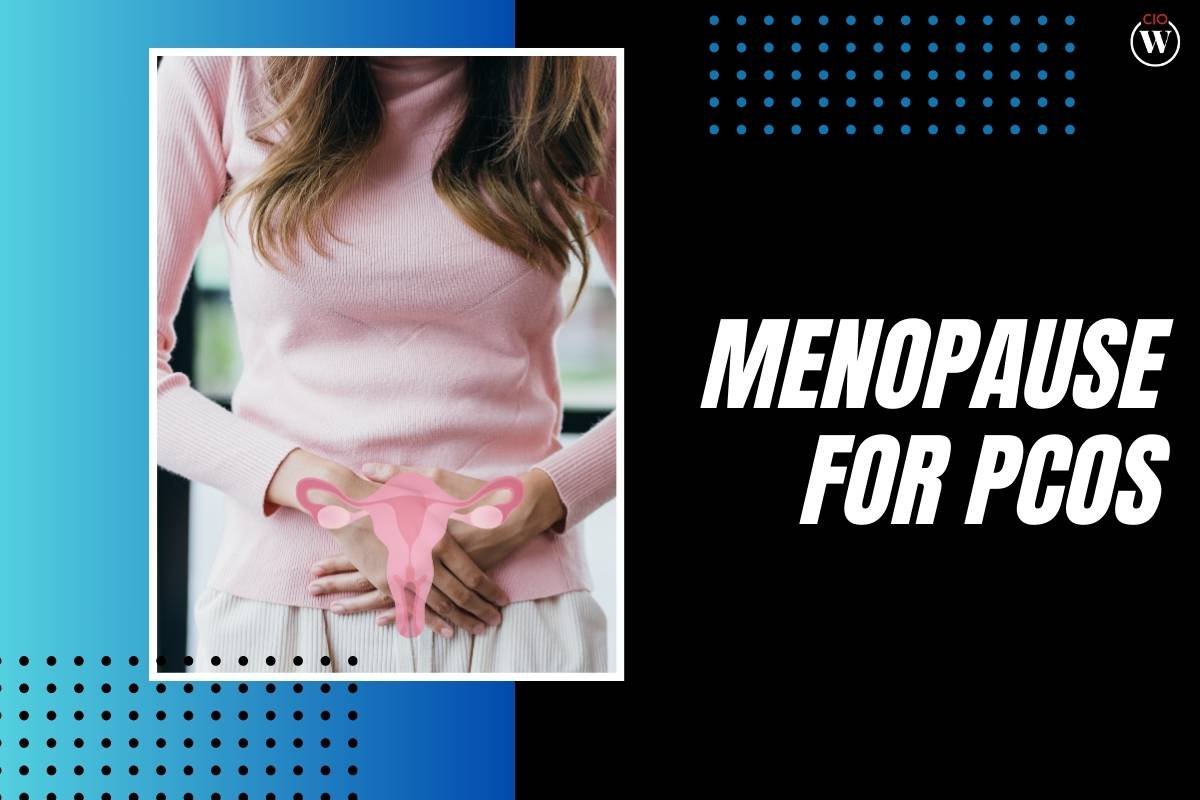Menopause, a natural biological process marking the end of a woman’s reproductive years, is a significant milestone in every woman’s life. However, for women with Polycystic Ovary Syndrome (PCOS), the journey through menopause can be a distinctive and challenging experience. In this article, we delve into the intricacies of menopause for PCOS, exploring the impact, symptoms, and management strategies for this specific demographic.
What is PCOS?
Before delving into the complexities of menopause for PCOS, it’s crucial to understand what PCOS entails. Polycystic Ovary Syndrome is a hormonal disorder common among women of reproductive age. It is characterized by irregular menstrual cycles, excess androgen levels, and cysts on the ovaries. PCOS can lead to various complications, including infertility, insulin resistance, and metabolic disturbances.
Menopause and PCOS: A Unique Intersection
Menopause, typically occurring around the age of 51, marks the cessation of menstruation and fertility in women. However, for women with PCOS, the transition through menopause can present unique challenges due to the underlying hormonal imbalances already present in their bodies.
Impact of Menopause on PCOS Symptoms

Menopause for PCOS individuals can bring about a myriad of changes and challenges. The hormonal fluctuations during menopause can exacerbate existing PCOS symptoms, such as irregular periods, acne, and hirsutism (excessive hair growth). Additionally, women with PCOS may experience more severe menopausal symptoms, including hot flashes, mood swings, and vaginal dryness.
Navigating Menopause with PCOS
Despite the challenges, there are various strategies women with PCOS can employ to navigate menopause effectively:
1. Hormone Replacement Therapy (HRT):
HRT can help alleviate menopausal symptoms and may also regulate hormonal imbalances associated with PCOS. However, it’s essential to consult with a healthcare provider to determine the suitability of HRT based on individual health profiles.
2. Lifestyle Modifications:
Adopting a healthy lifestyle, including regular exercise, a balanced diet, and stress management techniques, can help mitigate both menopausal symptoms and PCOS-related issues. Maintaining a healthy weight is particularly crucial as obesity can exacerbate PCOS symptoms and increase the risk of complications during menopause.
3. Medications:
Certain medications, such as oral contraceptives and insulin-sensitizing agents, may be prescribed to manage PCOS symptoms during menopause. However, the use of medications should always be discussed with a healthcare provider to ensure safety and efficacy.
4. Emotional Support:
The emotional impact of navigating menopause with PCOS should not be overlooked. Seeking support from friends, family, or support groups can provide invaluable emotional support during this transition.
5. Regular Monitoring:

Regular medical check-ups and monitoring of hormonal levels are essential for women with PCOS transitioning through menopause. This helps in early detection of any complications and enables healthcare providers to tailor treatment plans accordingly.
6. Dietary Considerations:
Adopting a PCOS-friendly diet rich in whole grains, lean proteins, fruits, and vegetables can help manage both PCOS symptoms and menopausal challenges. Incorporating foods with anti-inflammatory properties, such as fatty fish, nuts, and seeds, can also alleviate symptoms like joint pain and mood swings commonly experienced during menopause.
7. Stress Management Techniques:
Practicing stress-reduction techniques such as yoga, meditation, deep breathing exercises, or mindfulness can help alleviate both PCOS and menopause-related symptoms. Stress management is crucial as heightened stress levels can exacerbate hormonal imbalances and worsen symptoms such as hot flashes and mood swings.
8. Bone Health:
Women with PCOS are at increased risk of osteoporosis, a condition characterized by weak and brittle bones. During menopause, the decline in estrogen levels further exacerbates this risk. Therefore, it’s essential for women with PCOS transitioning through menopause to focus on maintaining optimal bone health through adequate calcium intake, vitamin D supplementation, weight-bearing exercises, and regular bone density screenings.
9. Sleep Hygiene:

Quality sleep is vital for overall health and well-being, particularly during menopause when sleep disturbances are common. Women with PCOS may already experience sleep disturbances due to hormonal imbalances and should pay extra attention to sleep hygiene practices. Establishing a regular sleep schedule, creating a relaxing bedtime routine, and creating a comfortable sleep environment can promote better sleep quality.
10. Regular Follow-ups with Healthcare Providers:
Women with PCOS navigating menopause should maintain regular follow-ups with their healthcare providers to monitor any changes in symptoms, assess hormone levels, and adjust treatment plans accordingly. Open communication with healthcare providers ensures that any emerging issues are addressed promptly, leading to better management of both PCOS and menopause-related symptoms.
Conclusion:
Menopause for PCOS individuals is a unique journey that requires careful management and support. By understanding the intersection of these two conditions and employing appropriate strategies, women with PCOS can navigate menopause with greater ease and maintain their overall health and well-being. It’s crucial to prioritize self-care, seek support when needed, and work closely with healthcare providers to ensure a smooth transition through this significant life stage.
In conclusion, menopause for PCOS individuals is a complex yet manageable phase of life. With the right support, resources, and strategies, women can embrace this transition with confidence and continue to lead fulfilling lives despite the challenges posed by both PCOS and menopause.









